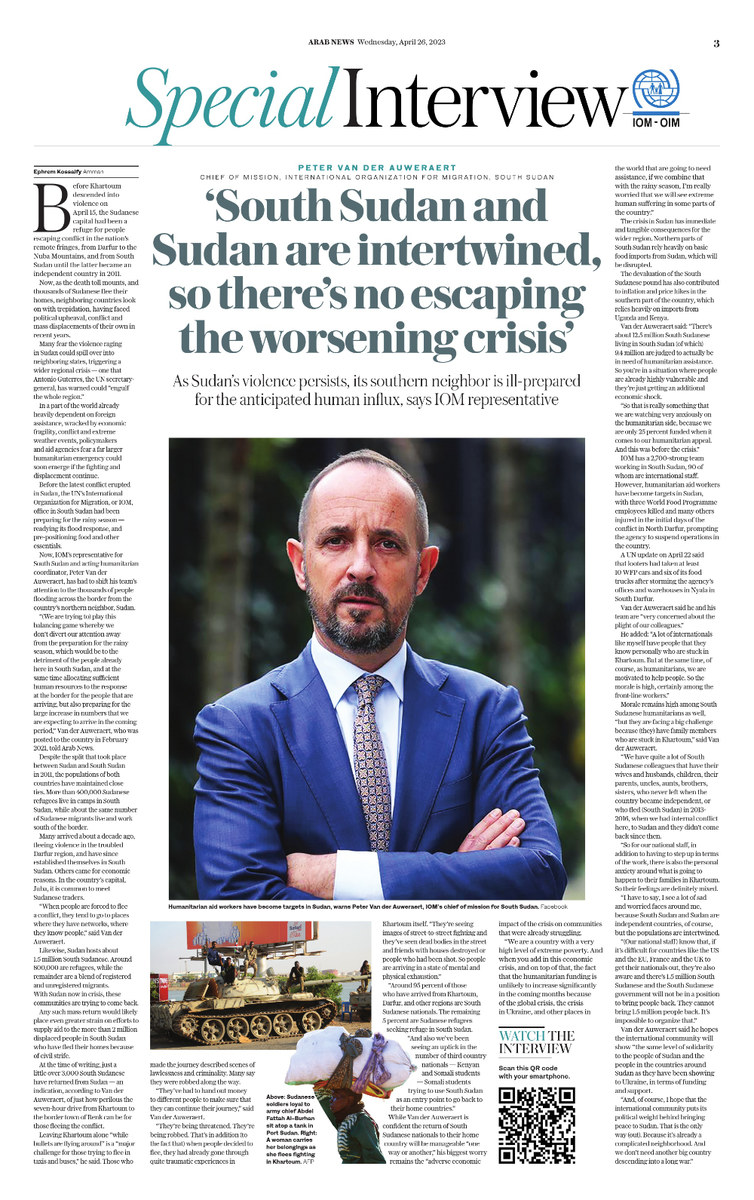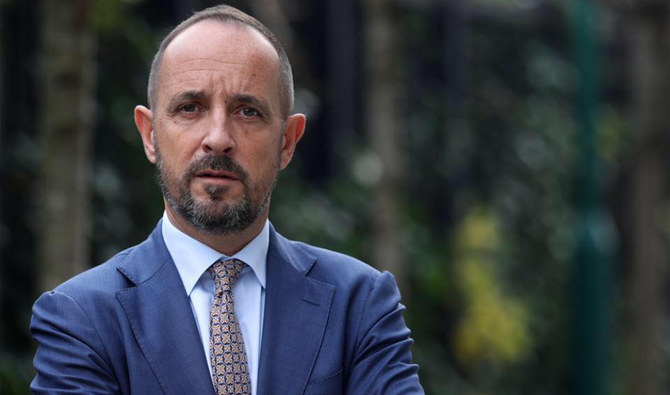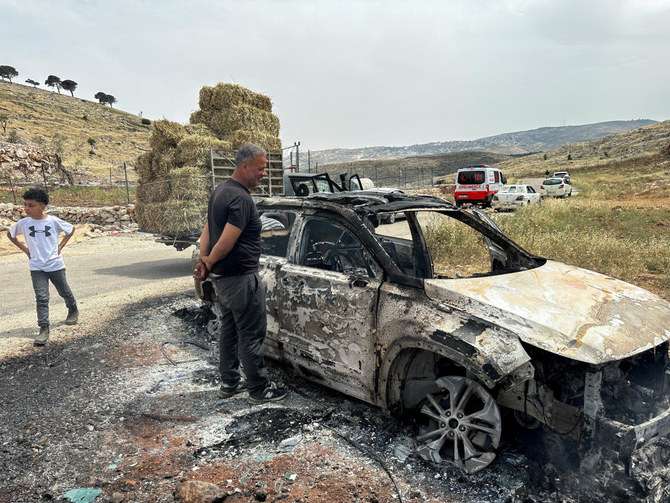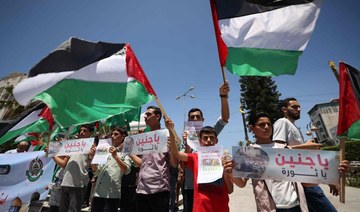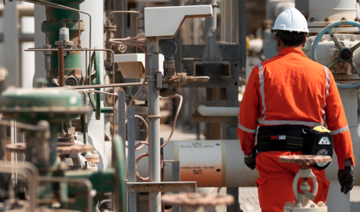AMMAN, JORDAN: Before Khartoum descended into violence on April 15, the Sudanese capital had been a refuge for people escaping conflict in the nation’s remote fringes, from Darfur to the Nuba Mountains, and from South Sudan, before the latter became an independent country in 2011.
Now, as the death toll mounts, and thousands of Sudanese grab whatever they can carry and flee their homes, neighboring countries look on with trepidation, having faced political upheaval, conflict and mass displacements of their own in recent years.
Many fear the violence now raging in Sudan could easily spill over into neighboring states, triggering a wider regional crisis — one that Antonio Guterres, the UN secretary-general, has warned could “engulf the whole region.”
In a part of the world already heavily dependent on foreign assistance, wracked by economic fragility, conflict and extreme weather events, policymakers and aid agencies fear a far larger humanitarian emergency could soon emerge if the fighting and displacement continue.
Before the latest conflict erupted in Sudan, the UN’s International Organization for Migration, or IOM, office in South Sudan had been preparing for the imminent rainy season — readying its flood response and pre-positioning food and other essentials.

Sudanese soldiers loyal to army chief Abdel Fattah Al-Burhan sit atop a tank in Port Sudan. (AFP)
Now, IOM’s representative for South Sudan and acting humanitarian coordinator, Peter Van der Auweraert, has had to shift his team’s attention to the thousands of people now flooding across the border from the country’s northern neighbor — Sudan.
“(We are trying to) play this balancing game whereby we don’t divert our attention away from the preparation for the rainy season, which would be to the detriment of the people already here in South Sudan, and at the same time allocating sufficient human resources to the response at the border for the people that are arriving, but also preparing for the large increase in numbers that we are expecting to arrive in the coming period,” Van der Auweraert, who was posted to the country in February 2021, told Arab News.
Despite the split that took place between Sudan and South Sudan in 2011, the populations of both countries have maintained close ties. More than 400,000 Sudanese refugees live in camps in South Sudan, while about the same number of Sudanese migrants live and work south of the border.
Many of them arrived about a decade ago, fleeing violence in the troubled Darfur region, and have since established themselves in South Sudan. Others came for economic reasons. In the country’s capital, Juba, it is common to meet Sudanese traders.
“When people are forced to flee a conflict, they tend to go to places where they have networks, where they know people,” said Van der Auweraert.
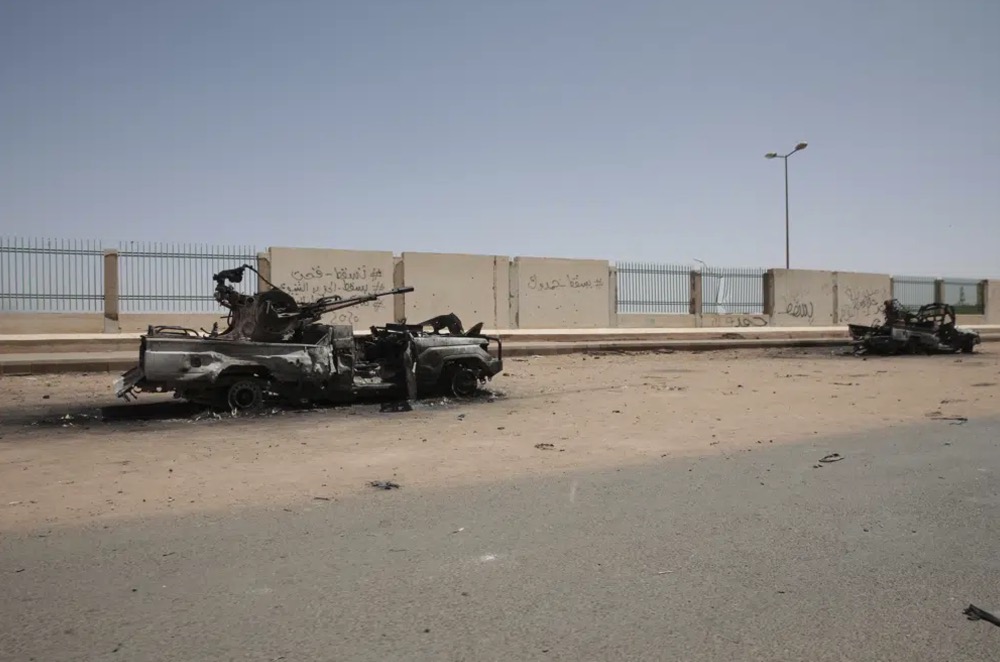
Many fear the violence now raging in Sudan could easily spill over into neighboring states. (AFP)
Likewise, Sudan hosts about 1.5 million South Sudanese. Around 800,000 of them are refugees, while the remainder are a blend of registered and unregistered migrants. With Sudan now in crisis, these communities are trying to come back.
Any such mass return would likely place even greater strain on efforts to supply aid to the more than 2 million displaced people in South Sudan who have fled their homes because of civil strife.
At the time of writing, just a little over 3,000 South Sudanese have returned from Sudan — an indication, according to Van der Auweraert, of just how perilous the mere seven-hour drive from Khartoum to the border town of Renk can be for those fleeing the conflict.
Leaving Khartoum alone “while bullets are flying around” is a “major challenge for those trying to flee in taxis and buses,” he said. Those who made the journey described scenes of lawlessness and criminality. Many say they were robbed along the way.
“They’ve had to hand out money to different people to make sure that they can continue their journey,” said Van der Auweraert.
“They’re being threatened. They’re being robbed. That’s in addition (to the fact that) when people decided to flee, they had already gone through quite traumatic experiences in Khartoum itself.
“They’re seeing images of street-to-street fighting and they’ve seen dead bodies in the street and friends with houses destroyed or people who had been shot. So people are arriving in a state of mental and physical exhaustion.”
“Around 95 percent of those who have arrived from Khartoum, Darfur, and other regions are South Sudanese nationals. The remaining 5 percent are Sudanese refugees seeking refuge in South Sudan.

“Around 95 percent of those who have arrived from Khartoum, Darfur, and other regions are South Sudanese nationals. The remaining 5 percent are Sudanese refugees seeking refuge in South Sudan,” said Van der Auweraert. (AFP)
“And also we’ve been seeing an uptick in the number of third-country nationals — Kenyan and Somali students — Somali students trying to use South Sudan as an entry point to go back to their home countries.”
While Van der Auweraert is confident the return of South Sudanese nationals to their home country will be manageable “one way or another,” despite the fact it will be “chaotic and there will be difficulties,” his biggest worry remains the “adverse economic impact of the crisis on a country and communities that were already struggling.
“We are a country with a very high level of extreme poverty. And when you add in this economic crisis, and on top of that, the fact that the humanitarian funding is unlikely to increase significantly in the coming months because of the global crisis, the crisis in Ukraine, and other places in the world that are going to need assistance, if we combine that with the rainy season, I’m really worried that we will see extreme human suffering in some parts of the country.”
The crisis in Sudan has immediate and tangible consequences for the wider region. Northern parts of South Sudan rely heavily on basic food imports from Sudan, which will be disrupted by the unfolding crisis.
“We are seeing a rapid increase in prices in the northern part of South Sudan,” said Van der Auweraert. “In the disputed Abyei area, we’ve seen a tripling of the prices in a week’s time since the Sudan crisis started. And we’re not talking here about cars. We’re talking about essentials for people.”
The devaluation of the South Sudanese pound has also contributed to inflation and price hikes in the southern part of the country, which relies heavily on imports from Uganda and Kenya.
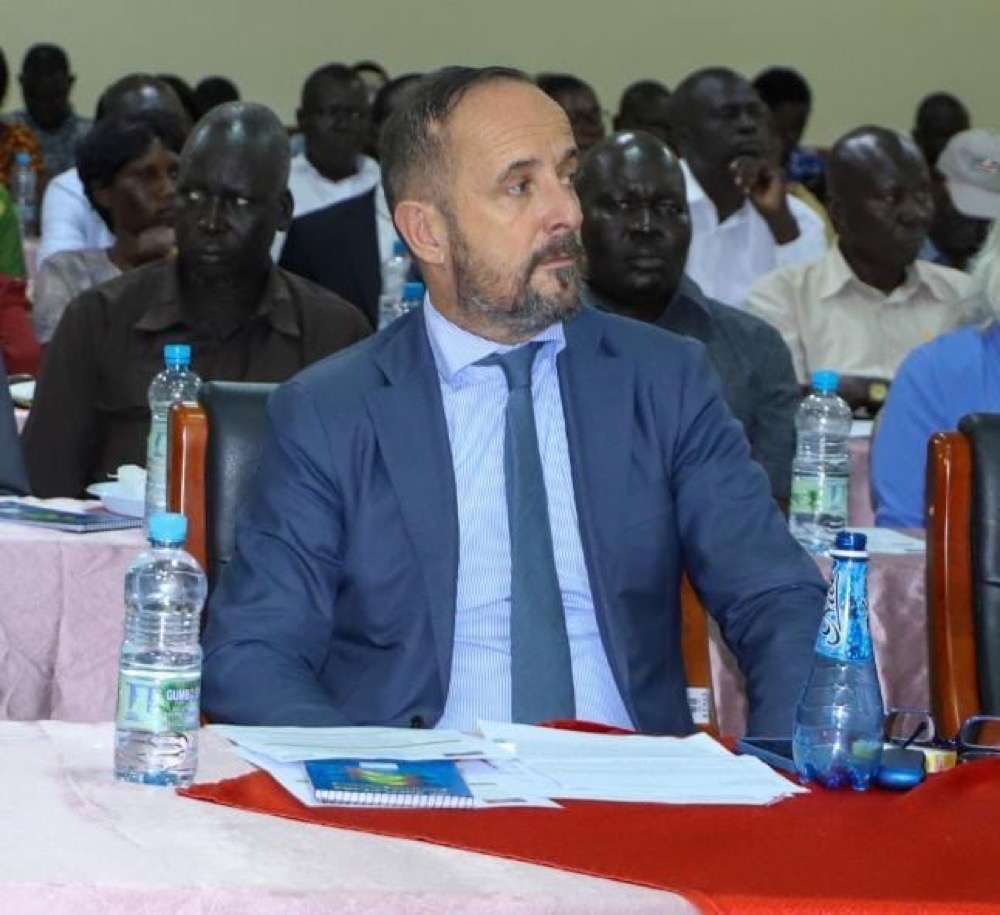
“When people are forced to flee a conflict, they tend to go to places where they have networks, where they know people,” said Van der Auweraert. (Supplied)
“This is problematic,” said Van der Auweraert. “Because you’re looking at a context where there’s about 12.5 million South Sudanese living in South Sudan (of which) 9.4 million are judged to actually be in need of humanitarian assistance. So you’re in a situation where people are already highly vulnerable and they’re just getting an additional economic shock.
“So that is really something that we are watching very anxiously on the humanitarian side, because we are only 25 percent funded when it comes to our ongoing humanitarian appeal. And this was before the crisis.”
IOM has a 2,700-strong team working in South Sudan, 90 of whom are international staff. However, humanitarian aid workers have become targeted in Sudan, with three World Food Programme employees killed and many others injured in the initial days of the conflict in North Darfur, prompting the agency to suspend operations in the country.
A UN update on April 22 said looters had taken at least 10 WFP cars and six of its food trucks after storming the agency’s offices and warehouses in Nyala in South Darfur.
Van der Auweraert said he and his team are “very concerned about the plight of our colleagues.”
He added: “A lot of internationals like myself have people that they know personally who are stuck in Khartoum. But at the same time, of course, as humanitarians, we are motivated to help people. So the morale is high, certainly among the front-line workers.”

A woman carries her belongings as she flees fighting in Khartoum. (AFP)
Morale remains high amid South Sudanese humanitarians as well, “but they are facing a big challenge because (they) have family members who are stuck in Khartoum,” said Van der Auweraert.
“We have quite a lot of South Sudanese colleagues that have their wives and husbands, children, their parents, uncles, aunts, brothers, sisters, who never left when the country became independent, or who fled (South Sudan) in 2013- 2016, when we had internal conflict here, to Sudan and they didn’t come back since then.
“I have a good local friend of mine. His kids are in the university in Khartoum. So for our national staff, in addition to having to step up in terms of the work, there is also the personal anxiety around what is going to happen to their families in Khartoum. So their feelings are definitely mixed.
“I have to say, I see a lot of sad and worried faces around me, because South Sudan and Sudan are independent countries, of course, but the populations are intertwined in a real sense.
“(Our national staff) know that, if it’s difficult for countries like the US and the EU, France and the UK to get their nationals out, they’re also aware and there’s 1.5 million South Sudanese and the South Sudanese government will not be in a position to bring people back. They cannot bring 1.5 million people back. It’s impossible to organize that.
“So, of course, they are concerned about their family members. I already have one South Sudanese colleague whose brother was killed in the crossfire in Khartoum. So unfortunately, we will probably see more of these types of cases. And that, of course, weighs on the national colleagues here.”
Van der Auweraert said he hopes the international community will show “the same level of solidarity to the the people of Sudan and the people in the countries around Sudan as they have been showing to Ukraine, in terms of funding and support.
“And, of course, (I hope) that the international community puts its political weight behind bringing peace to Sudan. That is the only way (out). Because it’s already a complicated neighborhood. And we don’t need another big country descending into a long war.”
